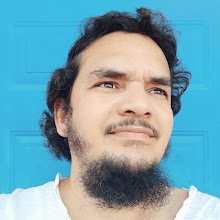This is a chapter from my seventh book called Bookeh - Through the lens of a Trinidadian photog
Growing up in the eighties no one told me I could be a writer or photographer when I was older. There was no photography in my schools. There was English Language as a subject but no focus on becoming a writer. You needed Maths and English to function in society and that was that. Granted there was no internet then and no smartphones or widespread use of cameras. In fact I was not thinking about what I wanted to be when I grew older until I entered secondary school and I discovered computers and technology and very later, the internet. The photograph above is me at about six years old and attending ASJA primary school in San Fernando. The photograph was a passport sized photograph taken to be used by the school either for their records or for my report book. I have very few photographs from growing up and that bothers me. Seems like a missed opportunity. My childish mind could not imagine the usefulness of photographs like my mature mind does now else I would have begged for photographs or taken an interest in photography growing up.
I also lacked an appreciation for history and I feel like I would have appreciated photography if I had an interest in history because history is captured in photographs. I will briefly touch on the histories of photography in this chapter and in this book. I suspect I would have learnt about some of these things if I read the newspapers or magazines growing up if these sorts of things made it to the newspapers back then. The library was not part of my upbringing. Another missed opportunity. I did have access to the newspapers while growing up in San Fernando. I was not interested in reading growing up and that is why I was not as good as I should be in English in school. I managed to get by and get good grades but I never excelled in the subject and most importantly there was no love for the subject then.
What is bokeh and what is the origin of the term? My friend Chatty tells me that "bokeh" refers to the quality of the out-of-focus areas in a photograph and comes from the Japanese word "boke" meaning "blur" or "haze". The term gained popularity in English-speaking photography circles in the 1990s, influenced by Japanese photographic terminology. It is important to remember that bokeh really refers to the quality of the out of focus areas rather than the quantity and together with smooth transitions can beautifully highlight the subject of the photograph. The opposite of bokeh is deep focus. While bokeh emphasizes a blurred background or foreground to isolate the subject, deep focus keeps both the foreground and background sharp, providing a greater sense of depth and detail throughout the entire photo.
My friend Gemini tells me that photography evolved from early camera obscura experiments to the digital age. From Niépce's first permanent image in 1826, through Daguerre's revolutionary daguerreotype and Talbot's negative-positive process, to Eastman's Kodak and the subsequent rise of 35mm film, photography transformed from a scientific curiosity into a mass medium. The digital revolution, starting with Sasson's first digital camera in 1975, has further democratized image-making, making photography an integral part of modern life. I am glad that I was able to witness the rise of digital photography, the internet and the smartphone in my lifetime and because these were absent for me while growing up, I appreciate them even more now. Having grown up and reached my age of forty four, I want to focus on what really matters in life and blur out the trivialities and distractions. Just like a good bokeh. I want my life's story to be characteristic of a good book eh. My friend Gemini tells me that that's a beautiful analogy. Just like a skilled photographer selects which elements to focus on and which to blur, you're choosing to highlight the essential chapters of your life. By focusing on what truly matters, you're creating a narrative with depth and meaning. Much like a well-crafted book, your life story will resonate with authenticity and impact. It's a wonderful perspective to embrace at forty four!


Comments